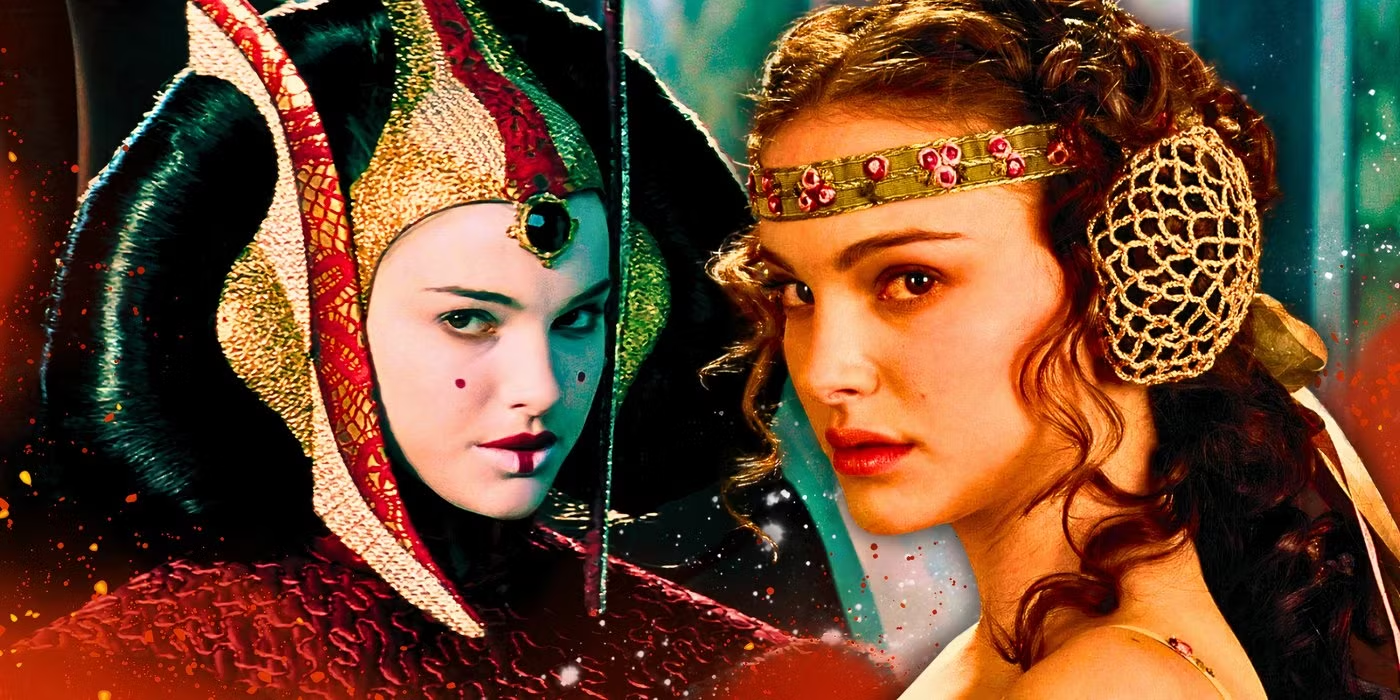If we’re diving into the galactic swirl of politics, power, and lightsabers, there’s one name that often gets overshadowed by Death Stars and Jedi prophecies: Padmé Amidala. Sure, she didn’t have Force powers (unless you count her unyielding ability to stay poised during galactic crises), but her role as a political leader in the Star Wars universe is nothing short of extraordinary. Let’s dissect her leadership, influence, and the challenges she faced as a female political leader navigating a galaxy not so far away—one dominated by power-hungry Sith Lords and egotistical senators.

Who Was Padmé Amidala?
Before we get into the heavy politics, let’s paint a picture of Padmé Amidala Naberrie. A young queen-turned-senator from the peaceful planet of Naboo, Padmé was a woman who could command a room of power players even before she was old enough to rent a star cruiser. She ascended to the throne of Naboo at just 14 years old (because, apparently, Naboo doesn’t believe in résumé requirements), and her reign was marked by intelligence, compassion, and resolve.
But don’t let her age fool you—Padmé was no figurehead. She was a tactician, a negotiator, and someone who could play the long game in the dangerous arena of galactic politics. If you’re thinking “galactic politics sounds boring,” well, welcome to the Palpatine School of Manipulation, where boredom is just the cover for a sinister plan.
Padmé’s Leadership: Grace Under Galactic Pressure
Padmé’s leadership style was one of thoughtful deliberation mixed with bold action—a balance that few politicians (fictional or otherwise) can pull off. Let’s look at a few of her defining moments:
1. The Naboo Crisis: A Trial by Fire
Padmé’s first major test as queen came during the Trade Federation’s blockade of Naboo. Now, this wasn’t just some annoying supply chain issue. We’re talking about a full-blown invasion, complete with battle droids and a Viceroy who could rival Palpatine in sliminess.
Instead of panicking, Padmé took decisive action:
- Allies First: She allied with the Gungans, a marginalized group on her planet, proving her ability to unite disparate factions.
- Diplomacy Meets Action: She didn’t just wait for help from the Jedi or the Senate—she led the charge to reclaim Naboo.
It’s rare to see a monarch (teenage or otherwise) willing to risk their life alongside their people. This wasn’t just a win for Naboo—it was Padmé’s first big display of leadership, showing that she could outthink and outmaneuver some of the galaxy’s biggest players.
2. Champion of Democracy in the Senate
After her term as queen, Padmé transitioned to the Galactic Senate, where her skills were put to the ultimate test. The Senate was a cesspool of corruption, ego, and bureaucracy, but Padmé managed to rise above it, often representing the voice of reason in a room full of bluster.
Key Legislative Highlights:
- Opposing the Military Creation Act: When the Republic debated forming a grand army, Padmé was one of the loudest voices against militarization. Her belief? Diplomacy and dialogue should prevail over warfare.
- Advocacy for Peace: Padmé’s speeches often championed negotiation and compassion, a stark contrast to the war-hawk tendencies of others in the Senate.
Her stance wasn’t always popular, but Padmé stuck to her principles. She wasn’t afraid to call out injustice, even when it put her at odds with the most powerful figures in the galaxy (looking at you, Palpatine).
3. Behind the Scenes: A Covert Leader
Not all of Padmé’s leadership was conducted on the Senate floor. She often worked behind the scenes, using her network of allies to push for justice. Whether it was teaming up with Bail Organa or secretly aiding the Jedi, Padmé was always working for the greater good. She wasn’t interested in glory—she was interested in results.

Challenges Padmé Faced as a Female Political Leader
Being a female leader in the galaxy far, far away came with its own set of challenges. While Star Wars rarely hits you over the head with gender politics, Padmé’s journey subtly reflects the struggles women face in leadership roles—both on Naboo and Earth.
1. Ageism and Sexism in the Senate
Let’s not sugarcoat it: the Galactic Senate wasn’t exactly a bastion of progressive thought. Padmé, as a young woman, had to fight to be taken seriously in a room full of older, often egotistical men. Despite her sharp intellect and unwavering principles, she was often dismissed or underestimated.
But instead of letting it slow her down, Padmé turned these assumptions into an advantage. Her ability to outthink her opponents was amplified by their inability to see her as a threat until it was too late. Classic “underestimate me at your peril” energy.
2. Balancing Personal and Professional Life
One of the more human aspects of Padmé’s story is her struggle to balance her personal life with her professional duties. Her secret marriage to Anakin Skywalker added layers of complexity (and, let’s be honest, drama) to her already chaotic life.
Padmé’s relationship with Anakin often put her in impossible situations:
- Moral Dilemmas: Anakin’s slide toward the Dark Side forced Padmé to confront uncomfortable truths about the man she loved.
- Sacrificing for the Greater Good: Despite her love for Anakin, Padmé never let her feelings cloud her judgment when it came to protecting the Republic.
Her story reflects the universal challenge of balancing personal commitments with professional responsibilities—just with a bit more Force-choking involved.
3. The Shadow of Palpatine
Let’s not forget that Padmé’s greatest challenge wasn’t just navigating bureaucracy or handling Anakin’s temper tantrums—it was going toe-to-toe with the galaxy’s ultimate puppet master, Palpatine. What makes her story so tragic is that she recognized the flaws in the Republic long before others did, but her warnings often fell on deaf ears.
Padmé’s inability to stop Palpatine wasn’t a failure on her part—it was a testament to his cunning and the sheer scale of his manipulation. Still, she resisted his rise at every turn, proving that even in the face of overwhelming odds, she wouldn’t compromise her principles.

Padmé’s Legacy: More Than a Tragic End
If you’re thinking, “Well, this is all very inspiring, but Padmé died tragically, so what’s the point?”—you’re not alone. Yes, her death was heartbreaking, and some fans argue it was an underserved end for such a strong character. But Padmé’s legacy lives on in profound ways.
1. A Model for Future Leaders
Padmé’s leadership style—rooted in empathy, intelligence, and courage—set a standard for leaders in the galaxy. Her influence can be seen in characters like Leia Organa and Mon Mothma, who carried on her fight for justice and democracy.
2. The Birth of the Rebellion
Though Padmé didn’t live to see the Rebel Alliance rise, her ideals laid the groundwork for its formation. Her partnerships with figures like Bail Organa ensured that the fight against tyranny didn’t die with the Republic.
3. A Reflection of Real-World Politics
Padmé’s story holds a mirror to our own political systems, highlighting the challenges of leadership, the dangers of corruption, and the importance of standing firm in the face of adversity. Her journey reminds us that true leadership isn’t about wielding power—it’s about serving others.

Conclusion: Padmé Amidala, the Unsung Hero of the Star Wars Universe
In a franchise filled with Jedi duels, space battles, and one particularly famous walking carpet, Padmé Amidala’s contributions to the Star Wars saga are often overlooked. But make no mistake—she was a powerhouse of political acumen, a beacon of moral clarity, and a leader who stood tall in a galaxy fraught with danger and deceit.
Padmé wasn’t just a queen or a senator; she was a symbol of hope, a voice for the voiceless, and a reminder that even in the darkest times, compassion and courage can light the way. Her story is a testament to the power of female leadership—not just in the Star Wars universe, but in every corner of our own galaxy.
So the next time you watch The Phantom Menace or Revenge of the Sith, don’t just focus on lightsaber battles and ominous Sith plots. Take a moment to appreciate Padmé Amidala, a leader whose legacy continues to shine brightly, even in the shadow of the Empire.
Stay up-to-date with the latest news, updates, and exclusive content! Click here to follow us on Google News and never miss a story from the galaxy and beyond.










